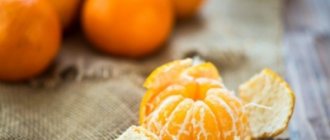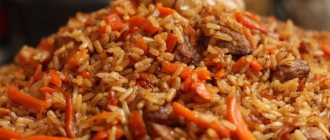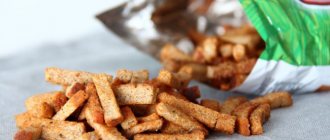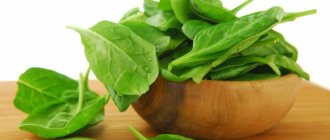Often, even if a woman is not giving birth for the first time, she still asks questions regarding proper nutrition and acceptable foods to eat. There is nothing wrong with this, since tastes and preferences change, and the range of stores also becomes diversified. Today we will talk about crackers, or more precisely their effect on the body of a new mother who is breastfed. This seemingly harmless product has its own consumption characteristics.
Compound
To understand whether you can eat dry bread, bagels or crackers while breastfeeding, you need to know their composition. They are prepared from wheat or rye flour with various additives.
Simple rye crackers do not pose any danger to mother and her baby. Some nutritionists even recommend replacing fresh bread with them. After all, they are quickly absorbed and digested.
But baking with various artificial food additives, seasonings and dyes should be treated with caution during lactation. Even your favorite vanilla cakes or bagels with poppy seeds can cause an allergic reaction in a newborn if eaten in large quantities.
Beneficial features
Many people think that dryers and bagels do not have any beneficial properties. But it is not so. These baked goods contain both vitamins and minerals necessary for the human body. By consuming these treats you can get vitamins B, E, H and PP. Microelements in breadcrumbs include:
- iodine;
- calcium;
- molybdenum;
- potassium;
- magnesium.
Most often, crackers are made from rye, wheat or rye-wheat bread. They help very well with poisoning and intoxication. These simple products can help restore the functioning of the digestive system and improve metabolism.
Is it possible to eat while breastfeeding?
During the period of breastfeeding, you need to be careful about the products that nursing mothers consume. You can eat crackers and drying during breastfeeding, but you need to know some features. Indeed, in addition to beneficial properties, they also have harmful qualities that can harm both the nursing mother and her baby.
If you completely remove fresh bread from a nursing mother’s menu and replace it with crackers and dried bread, you can harm the functioning of the digestive tract. Constipation occurs quite often with excessive consumption of these products. They do not bring such torment to an adult as to a small child. Therefore, this must be taken into account when breastfeeding.
You can introduce a new product into the diet of a nursing mother gradually. And be sure to monitor the child’s condition. If he has problems with bowel movements, it is better to postpone eating his favorite foods until later.
In the first weeks after birth, the baby’s body is in a state of stress, and the mother’s body returns to its previous state. At this time, doctors and nutritionists recommend eating no more than two crackers per day. It is imperative to monitor the child’s condition. After the first tasting of baked goods, it is better not to eat them for a couple of days in order to understand how the child reacts to these products. If there is no negative reaction, then the nursing mother can eat her favorite treat again.
How to properly dry crackers for a nursing mother?
Pediatricians strongly recommend that nursing mothers eat homemade crackers, which are much safer for the child’s body than the store-bought version. To dry bread at home, you will need:
- 0.3 kg of bread;
- 1 m spoon of table salt.
- First, we cut off the crusts on all sides of the bun, after which we cut the crumb into small cubes.
- Spread the resulting mass in an even layer on a baking dish and sprinkle with salt. You can place parchment paper on the bottom of the baking sheet.
- Place the workpiece in a hot oven.
- Dry for 15 minutes. at 180°.
During the first time of feeding a newborn, it is better to prepare crackers without adding salt.
It is advisable for nursing mothers to eat homemade bread products. Thus, a woman can be confident in the quality and composition of the product. When purchasing a store-bought version, you need to pay attention to the packaging, expiration date and composition, which should contain only natural ingredients.
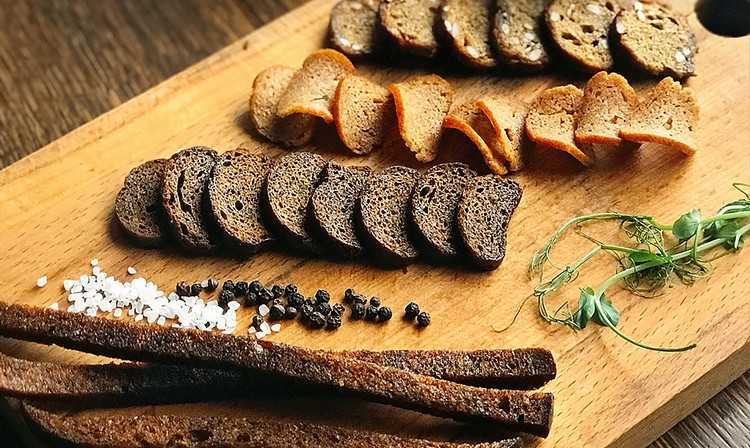
Creating a complete and balanced diet for a nursing mother is not easy. There is a list of foods recommended and prohibited for consumption. This list also includes crackers, but the question of whether they can be eaten while breastfeeding can be answered unambiguously. Drying will not harm the body of a woman or a newborn if it is of high quality. The list of prohibited products includes products of this class with flavors and various flavoring additives - snacks.
Rusks and drying with additives for breastfeeding
When breastfeeding, you should not get carried away with dried bread and bagels with any additives. Of course, delicious vanilla crackers or crackers with poppy seeds are more attractive to those with a sweet tooth, but any additives can provoke an allergy or other negative reaction to this product. Doctors recommend replacing them with crackers or biscuits, which will not harm the newborn.
Rusks and drying products contain a large amount of calories, sugar and flour. Therefore, they cannot be called healthy products. However, when breastfeeding, you can eat them, but in very small quantities.
Homemade crackers
To treat yourself to your favorite baked goods, a nursing mother can prepare them herself. Ordinary crackers are prepared like this.
You need to take the following products:
- 300 grams of bread;
- 1 teaspoon salt.
Preparation:
- Cut off the crust from all sides of the bread.
- Cut the bread into small cubes.
- Place the sliced bread on a baking sheet and sprinkle with salt.
- Place in an oven preheated to 180 degrees and dry for about 15 minutes.
- Crackers are ready!
Crackers with cheese
To prepare them you need to take:
- 300 grams of bread;
- 100 grams of hard cheese;
- 3 tablespoons olive oil;
- Salt to taste.
Preparation:
- Cut the crust off the bread.
- Cut into small cubes.
- Mix oil and salt.
- Mix bread with olive oil and stir.
- Place on a baking sheet.
- Grate the cheese on a fine grater.
- Sprinkle bread with cheese.
- Place the baking sheet in the preheated oven.
- Bake until golden brown.
To ensure that the crackers do not burn and acquire a beautiful golden brown color, you need to bake them at a temperature of 120-150 degrees. They usually take about 30-40 minutes to prepare. Of course, store-bought crackers and bagels are full of beautiful packaging and various types: with spices, fillings, poppy seeds, raisins, nuts. But often the alluring aroma and seductive taste of these products is created thanks to various flavors and chemical additives. It is better for a nursing mother not to eat such foods, but to prepare crackers at home to her liking. They will be much more useful than store-bought products.
Latest discussions:
Some foods in the diet of a nursing mother during certain months of the child’s development can negatively affect the functioning of his digestive system.
Such products include aromatic vanilla crackers during breastfeeding, because their composition causes the possible occurrence of unwanted reactions in the baby. Is it possible for nursing mothers to enjoy such a tasty product without harm to the baby or is it better to hold off on introducing it into the diet? Let’s look at all the pros and cons.
How to dry properly: nutritional principles
The good news, as a rule, is not low body weight and painful thinness, but, above all, good quality muscle tissue and the absence of excess fat. Success in achieving such a result depends 90% on your nutrition! Let's break down all the requirements for the new diet point by point.
How to calculate a calorie deficit? The simplest solution is to reduce your usual portions or add additional physical activity, thus increasing calorie consumption.
If possible, do a bioimpedance analysis - it will show the ratio of fat, muscle, mineral and water-salt mass in your body. He will also calculate the exact number of calories that your body must receive per day in order to function properly. Knowing this number, you can easily determine a healthy calorie deficit: to adhere to the regime, you only need a calorie calculator, which can be installed on your phone, and a little willpower.
We are talking primarily about complex carbohydrates (whole grains and vegetables) and proper animal fats (dairy products, meat, poultry and fish). Very often in my practice there are people who, when switching to cutting, rush around looking for 0% fat dairy products, avoid meat and are afraid to eat grains even in the form of porridge for breakfast. This is a key mistake! The functioning of the body’s immune and hormonal systems, the condition of connective tissue (skin/hair/nails/intervertebral discs/cartilage and ligaments), and, of course, muscle tissue is extremely sensitive to a deficiency of such nutrients directly depend on these nutrients. If you exclude these components from your diet, expect health problems, and, of course, we are not talking about beauty here (it’s difficult to be beautiful when your hair falls out, your nails crumble, your skin is in terrible condition and a person is constantly sick with something).

Alcohol is metabolized using the same principle. Know that all the calories from the glass of wine you drink will go straight into fat tissue. Conclusion: just give it up. There's no point in drying off all week and then relaxing with a glass of wine - you'll have to start all over again. It’s easier to say which drinks to leave on the menu:
- drinking and/or mineral water;
- tea;
- coffee;
- fruit drinks and compotes without sugar and other carbohydrate additives.
Did you remember about store-bought juices in bags, sweet soda, milk and coffee shakes? We have to disappoint you: their use and drying are incompatible.
Choose cottage cheese with at least 5% fat content and don’t be afraid to include a little quality butter in your breakfast or enjoy lean beef as a main course. Such products allow you to reduce the level of fat mass, maintaining hormones at the proper level and providing good immunity, as well as a supply of fat-soluble vitamins (A, D, E, K), which will significantly improve the quality of your muscles.
So-called slow carbohydrates (whole grains) should definitely be on your menu. By removing them from your diet, you are deprived of vitamins and microelements that are extremely important for muscle tissue and the entire body as a whole. On the other hand, even a small portion of whole grains can provide a lasting feeling of fullness, which will allow you to keep your appetite under control. Well, the high magnesium content in whole grains (the leaders are bran, buckwheat, oats, rice, rye, durum wheat) reduces cravings for fast carbohydrates such as candies, chocolate and baked goods.
Just choose from these low glycemic index options: blueberries, raspberries, blueberries, blackberries, plums, grapefruit or pomelo. Eat them for breakfast or at meals that precede physical activity. And watch the volume of portions - they should be small.

When talking about maintaining good physical shape, one cannot fail to mention body drying for women. The term came into everyday life from professional bodybuilding. Athletes use a special method of training and nutrition, which allows them to reduce the volume of fat mass and gain beautiful muscle definition in a relatively short time.
- Content:
In this article we will talk in more detail about the principles of proper body drying for girls, we will try to create a menu for the week and choose effective exercises.
How safe is the composition of vanilla crackers during breastfeeding?
Vanilla crackers have been known to everyone since childhood. They have a pleasant aroma and unique taste.
The recipe for these crackers is quite simple, but the ingredients in its composition raise concerns among pediatricians about their safety. Vanilla crackers are made from white flour (wheat). In addition, they contain yeast, margarine, eggs, sugar, salt, vanilla, as well as a large number of flavorings and flavor enhancers.
Contraindications for use during lactation
Vanilla crackers are good for a quick and nutritious snack (for example, with tea). However, consuming vanilla crackers can lead to the following undesirable effects:
- A large number of leavening agents, sweeteners and flavorings in vanilla crackers are harmful to the imperfect gastrointestinal tract of a newborn.
- Yeast in such crackers can cause fermentation in the stomach and intestines of mother and baby.
- It is not advisable to eat crackers with additives. The most common additives include poppy seeds, raisins, nuts, dried apricots, and prunes. Any of them can cause unpleasant consequences for the baby’s health.
- Excessive consumption of crackers can lead to constipation in a nursing mother and child.
Can I use vanilla crackers while breastfeeding? Most experts are inclined to believe that their use can be harmful to the baby’s body. However, even doctors admit in rare cases the possibility of eating one or two crackers without harm to health. It is important that such drying is of high quality, fresh and has a safe composition.
The optimal period for including vanilla crackers in the menu of a nursing mother is 6 months from the birth of the child.
Composition of dryers
To prepare the drying, premium flour, sugar, salt, yeast and butter are used. When baking bagels and sushi, it is important to observe temperature parameters in order to preserve all the components beneficial to the body.
The main ones are copper and manganese. Copper is involved in metabolism, stimulates the immune system, and also normalizes the condition of blood vessels and the heart. Manganese takes part in the formation of bones, so its content in a woman’s diet during pregnancy and lactation should be high.
The drying also contains B vitamins, which are necessary for the normal development of the baby’s central nervous system, as well as to increase the stress resistance of the young mother. In addition, they take part in all metabolic processes.
Drying products for hot water are permitted products. However, if you completely abandon fresh bread in favor of crackers, you may experience constipation or other intestinal problems. In this case, the mother’s body will not remove toxins, which will negatively affect breast milk.
Store-bought crackers with flavors can harm even a healthy adult.
And for a nursing mother and baby, such products can be very dangerous, as they provoke:
- allergic reactions in mother and baby due to flavors, preservatives, dyes and other harmful additives;
- fluid retention in tissues due to high salt content;
- problems with the gastrointestinal tract caused by low-quality fats included in the composition.
| Name of useful microelement | Main action |
| Vitamin B1 | Ensuring metabolic processes, strengthening cellular protection, stimulating brain activity, concentration, memory activation, slowing down the aging process. |
| B9 | Ensuring the full development of the body, stabilizing hormonal balance, maintaining the immune system. |
| B2 | Improving the appearance of nail plates, epidermis, hair, normalizing the functioning of the nervous system and thyroid gland, glycogen synthesis, increasing the immune qualities of the body. |
| B6 | Prevention of nervous disorders, ensuring the absorption of fats and proteins, slowing down the aging process, normalizing the functioning of the urinary system. |
| B4 | Stabilizes the functioning of the central nervous system, liver, prevents the formation of gallstones, lowers cholesterol levels, strengthens vascular walls, normalizes heart rate. |
| B5 | Stabilization of hormonal balance, normalization of adrenal activity, increasing the body’s immune properties, stimulating brain activity. |
| E | Ensuring tissue regeneration, improving muscle tone, preventing the appearance of malignant neoplasms, slowing down the aging process. |
| PP | Vasodilation, saturation of the body with energy, lowering cholesterol levels, hormone synthesis, improving the structure of the epidermis, normalizing the activity of the nervous system, stimulating the functioning of the visual organ. |
| H | Ensuring metabolism, stabilizing the nervous system, alleviating muscle spasms, restoring beneficial intestinal microflora. |
| Fe (iron) | Therapy and prevention of anemia, increasing hemoglobin levels, strengthening the immune system, normalizing the functioning of the thyroid gland. |
| K (potassium) | Improving the functioning of the cardiovascular and nervous systems, regulating water balance, saturating the brain with oxygen, eliminating swelling. |
| Mn (manganese) | Preventing the development of diabetes mellitus, stimulating brain function, normalizing the activity of the central nervous system, pancreas, lowering cholesterol levels. |
| Ca (calcium) | Strengthening bones and tooth enamel, ensuring normal blood clotting, stabilizing the functioning of the nervous system, stopping inflammatory processes. |
| Si (silicon) | Formation of bone and cartilage tissue, strengthening the walls of blood vessels, normalizing the activity of the thyroid gland, removing toxic elements from the body, improving the structure of hair, nails, and epidermis. |
| Co (cobalt) | Ensuring metabolism, blood formation, maintaining the functioning of the pancreas. |
| Se (selenium) | Strengthening the body's protective qualities, preventing cancer, stimulating metabolic processes, improving the structure of hair, epidermis, and nail plates. |
| Mg (magnesium) | Saturating the body with energy, normalizing the functioning of the central nervous system, cardiovascular, endocrine systems, maintaining dental health, relieving gastrointestinal disorders. |
| Zn (zinc) | Prevention of diabetes, epilepsy, rheumatism, arthritis, formation and strengthening of bone tissue, wound healing, improvement of hair condition. |
| S (sulfur) | Ensuring normal blood clotting, slowing down the aging process, improving the appearance of nail plates, hair, epidermis, collagen synthesis, relieving allergic manifestations. |
| Mo (molybdenum) | Ensuring cellular respiration, strengthening teeth, increasing hemoglobin levels, improving blood composition, regulating metabolic processes, preventing diabetes, impotence, gout, removing uric acid from the body. |
| P (phosphorus) | Formation and strengthening of bone and dental tissue, protein synthesis, maintenance of muscle function, stimulation of brain activity. |
| Cu (copper) | Participation in the conversion of iron (Fe) into hemoglobin, ensuring the full growth and development of the body, and the formation of collagen. |
| I (iodine) | Stabilization of the activity of the central nervous system, thyroid gland, elimination of stressful conditions, increasing the elasticity of vascular walls, saturating the body with energy, stimulating mental activity. |
We suggest you read tea with lemon: is it possible for a nursing mother or will it harm the baby?
How are they useful for breastfeeding?
Rusks made from wheat and rye bread help eliminate signs of intoxication in the body. This product is great for restoring metabolic processes and normalizing the digestive system.
Eating such food during breastfeeding has a positive effect on the health of the nursing mother and baby, as the body is saturated with beneficial vitamins and minerals in the postpartum period. Valuable microelements contained in baked goods are necessary for the full growth and development of the baby.
Harm of crackers
Despite the rich composition, which has a beneficial effect on women’s and children’s bodies, crackers can be harmful to health. This may occur if this product is abused. One of the negative consequences is constipation. Due to prolonged retention of stool, toxic compounds accumulate in the body of a nursing mother and penetrate into breast milk. Overeating can also cause obesity and other unpleasant phenomena.
Mothers should not eat store-bought crackers, which are considered a beer snack. Such products contain large amounts of salt, spices, and chemical elements that provoke allergic reactions in infants.
How to choose store-bought vanilla crackers for your mother during breastfeeding
There is a fairly large assortment of vanilla crackers on store shelves. How to choose such drying in order to protect yourself as much as possible from harmful effects?
The quality of vanilla crackers can be determined by the following criteria:
- Appearance. Such crackers should be light golden in color and well fried.
- Composition of the product. The list of ingredients should not contain preservatives, flavors, sweeteners, or flavor enhancers.
- Shelf life . The shelf life of vanilla crackers is on average 90 days. It is advisable to choose the freshest possible product. After opening the package, you must ensure that there are no foreign odors or external signs of staleness in the product.
- Product packaging. The packaging in which vanilla crackers are stored and sold must be sealed and free of damage. Transparent polyethylene is best suited for these purposes.
How to make homemade vanilla crackers for nursing mothers
The safest way is to make vanilla crackers at home. Let's consider one of the recipes for their preparation based on natural ingredients.
Required Ingredients
- Milk - 250 ml;
- Egg -2 pcs.;
- Butter -50 g;
- Flour -0.5 kg;
- Sugar -150 g;
- Salt - 5 g;
- Yeast -10 g;
- Vanillin -2 g.
Cooking process
- Heat the milk until warm.
- Add yeast and a little sugar (1 - 2 tsp).
- Stir and leave the starter to rise.
- After 20 - 30 minutes, add eggs, vanillin, the rest of the sugar, and salt.
- Melt the butter in a water bath and also add to the previously obtained mass.
- Sift the flour and add it there.
- Mix everything.
- Knead the dough (not stiff) and leave to rise for about an hour.
- Knead the resulting dough slightly.
- Form “sausages”.
- Place on a baking sheet.
- Place in a preheated oven for 10 – 15 minutes.
- Cool for several hours.
- Cut into slices and dry in a slightly heated oven for about 10 minutes.
Vanilla crackers during breastfeeding can be eaten only in rare cases and in limited quantities (no more than 2 - 3 pieces per day). It is advisable not to eat them daily, but with an interval of at least 3 to 4 days.
It is important that the crackers are made in compliance with all requirements, without the use of preservatives and flavoring agents, and with a minimum amount of sugar. It is preferable to use vanilla crackers prepared independently at home. To avoid constipation, it is recommended to drink additional liquid along with crackers.
For those mothers whose babies are breastfed, the issue of nutrition is very relevant. After all, it is known that certain foods can cause diarrhea in an infant, or, conversely, tighten the tummy too much, which will lead to intestinal colic. Therefore, a nursing mother should carefully select her own diet. Let's figure out whether it's possible to eat crackers while breastfeeding?
Drying: periods and their duration

The dry diet is very similar to the famous protein diets. You need to get a kitchen scale. They will help you calculate the daily calorie intake that must be observed, otherwise all efforts will be in vain.
Calculation of starting values:
- proteins 40% = 1500x0.4/4 = 150 g/day
- fats 30% = 1500x0.3/9 = 50 g/day
- carbohydrates 30% = 1500x0.3/4 = 112 g/day
It is necessary to eat in this mode for several months before drying. The balance of BJU can be changed, for example, if there is a gain in muscle mass, then the recommended values are B 50%, F 15%, U 35%. Many girls, without thinking about health, immediately switch to a low-carbohydrate diet. This is strictly prohibited!
The drying process is long and takes many weeks, and the amount of carbohydrates is reduced gradually. Non-professional drying for beginners is divided into the following weeks:
| Squirrels | Carbohydrates | Fats |
| A week | Peculiarities | |
| First | Fast carbohydrates are replaced with slow ones: cereals, cereals, vegetables and herbs. It is important to calculate your daily calorie intake. | |
| Second | BZHU accounting is connected. Per kg of weight, consume 3 grams of protein, 2 grams of carbohydrates, half a gram of fat. | |
| Third | The amount of carbohydrates consumed is reduced to 1 gram per kg of weight. | |
| Fourth | The amount of carbohydrates consumed is reduced to 0.5 grams per kg of weight. | |
| Fifth | The diet consists of approximately 80% protein and 20% fat. Carbohydrates are completely excluded. |
You should get out of drying without harm to your health, gradually increasing the amount of carbohydrates consumed and reducing the amount of protein until the recommended norm of BJU is reached.
Proper nutrition for nursing mothers
If you look at what women in Western Europe eat while breastfeeding, you can be truly horrified. Right in the maternity hospital, they are served orange and berries for breakfast, and our women worry whether they can eat banal dried fruit.
In developed countries of the world there is no such thing as a diet for a nursing mother, much less proper nutrition. Women eat what they want and when they want, with the exception of alcohol, of which they allow themselves no more than one glass of wine a day.
In the understanding of Russian matrons, such willfulness in nutrition during breastfeeding can lead to a number of problems with the child’s health:
- diathesis;
- constipation;
- colic;
- diarrhea.
And this is just a small list of what they scare new mothers in maternity hospitals.
Domestic doctors have compiled a certain recommended menu, which, in their opinion, is ideal for those who want to raise a healthy child while breastfeeding. This list included:
- non-red vegetables and fruits;
- low-fat dairy products;
- green tea;
- dried fruits compote;
- cereal porridge;
- rye crackers.
This is what a rather meager menu looks like, which Russian doctors recommend eating until the child reaches the age of five months, that is, before the introduction of complementary foods.
Cosmo recommends

Let's dot all the i's right away: what is commonly called cutting is not a type of express diet, but a fairly tough way to reduce the percentage of subcutaneous fat, which is usually used by bodybuilders before competitions. If you are pursuing more prosaic goals: for example, feeling confident in a swimsuit and revealing clothes, fitting into jeans a size smaller and taking beautiful selfies in the mirror, get acquainted with the soft version of this system. Experts will help us with this.
Can nursing mothers eat crackers?
Young mothers who have just given birth to their first child are always at a complete loss - what can they eat? Then more experienced women from their relatives begin to give them various advice, saying that this and that is not allowed. Such prohibitions leave mothers in shock, since the meager menu offered is fundamentally different from how they were used to eating before giving birth. It turns out that the body, which has not yet become stronger after childbirth, does not receive enough of all the elements it needs, which has a bad effect on the well-being of the woman in labor and, accordingly, on the quality of the milk. If the fat content of the latter drops, the child will not eat enough, will begin to gain weight poorly and will soon have to introduce artificial nutrition with formulas.
Questions about permitted and prohibited foods during breastfeeding are full of questions on the Internet. After giving birth, many people feel a strong craving for crackers, but is it possible to rely on them?
During the first two weeks, before the onset of acute colic in a child, domestic doctors recommend eating no more than two dry foods per day. Next, you should take a mandatory two-week break and see if the child has a reaction to this product. If everything is fine, no rash or bloating appears, then you can safely introduce drying into your daily diet in any quantity.
Why is drying necessary?
Drying in the classical sense is a bodybuilding term used in the pre-competition period. During the drying period, athletes rearrange the training process and diet to obtain better results. Namely: to reduce the amount of subcutaneous fat without losing muscle mass. As a result of drying, the muscles look prominent and defined: cubes appear on the stomach, and muscles are visible on the arms and hips.

Of course, this process can be applied not only to athletes, but also to an ordinary person who regularly engages in physical activity. To do this, you need not only to train, but also to monitor your diet: maintain a calorie deficit, distributing proteins, fats and carbohydrates in certain proportions, and maintain water balance.
Vanilla drying for nursing
Dried fruits can be eaten after childbirth, but they, like other products, have a number of special restrictions that should be taken into account.
If you do not want your baby to develop itchy rashes and tummy pain, then exclude crackers with various additives from your diet, such as dried apricots, raisins, nuts and poppy seeds. Of course, these types of dry foods are much tastier, but you must remember that the health and well-being of your newborn is always a priority.
Vanilla crackers are rightfully considered the most aromatic and delicious. But pediatricians openly oppose the use of this product while breastfeeding. Their protest is based on the fact that this product is made from white wheat flour, yeast, raising agents and a large amount of sweeteners. Such food will definitely have a negative impact on the newborn’s intestines.
If the crackers do not contain sugar or flavorings, then you can eat a couple a day and this will not affect the quality of your milk. Be extremely careful with the amount of dried bread you eat. If you eat too much wheat bread or crackers, you can cause intestinal dysfunction.
When mom can’t bear to chew on a cracker, it’s better for her to turn her attention to whole grain breads, which are considered healthier.
Nursing mothers can eat crackers, except those seasoned with a lot of spices and flavorings.
Physical exercise

During drying, you need to perform various exercises. Aerobic exercise (running, walking, swimming) is recommended to increase endurance. In strength exercises, it is recommended to reduce the weight and increase the number of repetitions and approaches to 15-20 times. Rest between approaches is reduced. Girls can perform body drying exercises at home. The equipment used is dumbbells weighing 2-3 kg, jump ropes and a mat, and the training time is 45-60 minutes. Example workout (sets/times):
- Warm up to warm up your joints and muscles.
- Deep squats 4/30.
- Push-ups 4/15.
- Ab crunches 4/20.
- Leg swings 4/30 for each leg.
- Dumbbell raises to the sides from the chest 4/20.
- Plank 1 minute.
- Buckles with skipping rope 1 minute.
- Stretching.
Every other day, it is recommended to conduct a full-fledged cardio workout outdoors or in the gym, if weather conditions do not allow.
How to make crackers at home?
Take a loaf of bread and cut it into thin pieces. Pour olive oil on top, lightly salt and sprinkle with finely chopped dill. Place a baking sheet with sliced bread in an oven preheated to 200°C and keep there for 20 minutes.
Some housewives prefer to cook crackers in the oven in a plastic bag, and five minutes before they are ready, cut the bag to completely dry the liquid.
All! Your crackers made from natural ingredients are ready to eat. You can be sure that home-cooked food is healthy for you and your baby.
Dryers and crackers, at first glance, are a product that can be included in the diet while breastfeeding. But from the point of view of nutritionists, it is safe to eat only rye bread crackers, dried at home, while strictly limiting their quantity.
Beneficial features
Bakery products, which include dryers and crackers, contain substances that are beneficial for the bodies of a nursing mother and child. It is a source of vitamins E, H, PP, B, as well as important microelements, including:
- calcium (Ca);
- magnesium (Mg);
- potassium (K);
- iodine (I);
- molybdenum (Mo).
To prepare crackers, bread made from rye or wheat flour is used. This product is especially useful for intoxication and poisoning - it works as a sorbent, helping to remove harmful substances from the digestive system.
In small quantities, rye bread crackers help normalize digestion and improve metabolism. By replacing part of the bread with crackers in your diet, you can reduce the calorie content of food - this will help you lose excess weight after childbirth. Read about how to quickly lose weight for a nursing mother.
Rusks and dried products are not recommended for women suffering from constipation to be included in the diet when breastfeeding - this product can worsen the situation.
Rules for introducing into the diet
When breastfeeding a newborn, a woman should introduce crackers into her diet correctly. A new product should be included in the menu gradually. You can try this delicacy in the first weeks after delivery.
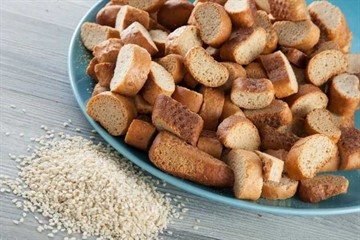
First, you should eat one cracker or dry bread and take a break for a couple of days. During this time, you need to monitor the condition of your child.
If the baby has problems with stool and sleep, colic, or a rash on the body, then you need to stop using them. After a couple of months, the baby’s stomach will become stronger, so you can try introducing dry foods into the diet again.
If the child does not experience any negative symptoms, then it is allowed to increase the daily portion of flour products to three pieces per day. It is not recommended to get carried away with drying and breadcrumbs: this product can cause constipation. The optimal daily serving size is 80-100 grams.
Harm of crackers and dryers
In order not to harm the health of mother and child, you should not overuse crackers and dryers. By completely replacing fresh bread with crackers, it is easy to disrupt the functioning of the digestive tract and cause constipation. At the same time, the mother’s body does not get rid of toxins well, which can penetrate into breast milk and harm the baby’s well-being.
Store-bought crackers may pose a health hazard. This primarily applies to popular salty crackers, which contain artificial additives.
This product provokes:
- water retention in body tissues due to excess salt (negatively affects the kidneys and cardiovascular system);
- allergic reaction due to the high content of preservatives and chemical flavors;
- indigestion due to low-quality fats used in cooking.
Such crackers are especially harmful to the baby’s health, since chemical additives negatively affect the functioning of the gastrointestinal tract, the brain and internal organs of the baby.
When breastfeeding, you should also not include vanilla-flavored crackers and crackers in the glaze, since they also contain flavorings. In addition, this product contains a large amount of sugar. Excess sugar contributes to weight gain and metabolic disorders in a nursing mother, and can cause an allergic reaction and tummy pain in the baby. For more information about what products can be included in the menu of a nursing mother, read the article at the link
Dangerous and safe crackers during breastfeeding
Yes, this is exactly how you can classify these crispy delicacies, which many nursing mothers love today. What is this division based on and why are some crackers edible and others not?
First of all, we note that it is absolutely forbidden to:
- croutons for beer;
- croutons “with flavors” - squid, black caviar, grilled chicken, etc...
In principle, these products can hardly be called edible for ordinary people - healthy men, women and children, and for a nursing mother they are even more poisonous. To be precise, for a baby whose main food is breast milk, those synthetic additives that contain such products that have an extremely negative effect on the body are supplied. In this case, literally everything needs to be questioned: the integrity of the manufacturer, indicating the “genuine” ingredients of the crackers, and most importantly, their true composition - flavor enhancers, flavorings, preservatives, fats used for frying, and much more.
All of the above can cause not just banal diathesis, but serious disorders of the digestive and other systems of the body, especially if they are consumed regularly.
- Not the easiest, but certainly the most reliable, is to make your own croutons.
- Replace crackers and dryers with whole grain crispbread.
- Buy crackers and drying products only from manufacturers known to you with a minimum amount of additives unknown to you.
How to choose a quality product
The store's assortment includes crackers from large and small manufacturers; in addition, supermarkets also offer products of their own production.
It is precisely this that should be completely abandoned when breastfeeding, since such crackers are usually made from the remains of unsold bread without strict adherence to standards. There is no guarantee that the breadcrumbs are free of undesirable additives or that the bread from which they are made has been stored correctly and has not become moldy.
When buying crackers or dryers, give preference to products from reputable manufacturers. Read the ingredients carefully - there should be as few unwanted additives as possible, such as raising agents, flavorings, and sweeteners.
You should not include crackers with raisins in a nursing mother’s diet - this dried fruit provokes fermentation in the gastrointestinal tract, and the baby may get a stomach ache. Crackers with nuts can be consumed in small quantities if the child is not allergic to nuts. It is also allowed to add crackers with dried apricots to the menu from time to time.
When it comes to drying, the best option would be a product without any additives and with a minimum amount of sugar. This product is made from wheat flour and is less beneficial for the body during breastfeeding compared to rye crackers.
When purchasing, be sure to pay attention to the appearance of the products. Dryers and crackers are sold in transparent packaging, so you can assess the amount of crumbs and damaged products, and make sure that the product is not affected by mold. Pay close attention to the date of manufacture and shelf life of the product.
To make homemade crackers, use rye bread. Place the cut small pieces on a baking sheet and lightly sprinkle with vegetable oil. You can add a little salt and sprinkle future crackers with finely chopped or dried dill. Then dry the crackers in the oven, stirring regularly and being careful not to overcook.
The introduction of dry foods and crackers into the menu during breastfeeding is carried out according to the standard scheme - it is important to check whether the baby is allergic to the new product.
Benefits or harms of breastfeeding
Some may think that crackers are not beneficial, but this is not the case. They contain a sufficient amount of minerals and vitamins that are necessary for the normal development of the child’s body and the restoration of the maternal body, which was weakened after childbirth.
Rusks contain the following useful components:
- Vitamins of group E, H, B, PP.
- Calcium.
- Molybdenum.
- Magnesium.
- Iodine.
- Potassium.
- Iron and other trace elements.
Rusks are prepared from bakery products that were baked from wheat, rye and wheat-rye flour. They are also used for medical purposes, as an effective remedy for poisoning and intoxication, due to the fact that crackers are able to normalize metabolic processes and improve the functioning of the digestive system.
In addition to the benefits, crackers can harm the body . This mainly applies to those that are present in large quantities on the shelves of our stores, like a salty snack for beer with various additives:
- Red caviar;
- bacon;
- sausages;
- crabs;
- grilled chicken;
- cheese, etc.
In addition to the fact that products in this category contain a large number of chemical additives and various spices, they also contain a lot of fats, which are used during the frying process and are clearly not beneficial.
Such a “snack” is not healthy even for strong, adult and healthy people, not to mention women who are breastfeeding.
Among the most common problems are:
- the occurrence of problems with the cardiovascular system;
- kidney dysfunction;
- excess salt causes swelling;
- the possibility of an allergic reaction;
- problems with the digestive system;
- development of diathesis in children;
- disorders of the digestive organs and a general negative impact on the entire developing child’s body.
You should not include crackers with raisins in your diet . This dried fruit can cause fermentation processes, causing discomfort to the child. Moreover, questions always remain regarding the quality of raisins, their storage conditions and heat treatment.
How to choose quality ones in the store?
It’s worth noting right away that you need to give up those salty crackers that are offered on store shelves in huge quantities and position themselves as a snack for beer.
And in general, you should not buy such crackers in the store, since often the quality of the flour that is used leaves much to be desired.
It’s also no secret that such store-bought crackers are made from unsold, stale bread .
Reference! It is necessary to pay attention to the composition. Bakery products made from whole grain bread are considered the healthiest.
You need to choose crackers in a pharmacy or in a supermarket in the baby food section , but even in this case it is very important to look at the manufacturer, whose name should be known and the expiration date. If you still want to treat yourself to crackers, the quality of which you will not doubt, then it is best to prepare them yourself.
